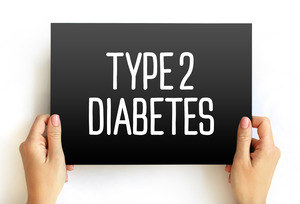
You may have heard how sleep apnea can leave you feeling excessively drowsy during the day and significantly raise your risk of suffering from a heart attack. But the potential health consequences of sleep-disordered breathing go even further than that. In some cases, sleep apnea can be linked to type 2 diabetes; here’s a closer look at this relationship and what you can do about both conditions.
Sleep Apnea and Type 2 Diabetes
Sleep apnea can interrupt your breathing multiple times during the night, forcing your body to repeatedly wake up for air. These awakenings are typically so brief that you likely won’t remember them, but they still interrupt the sleep cycle, thus resulting in poor-quality slumber.
What does this have to do with diabetes? Simply put, sleep apnea can lead to oxygen deprivation, which can result in increased insulin resistance. The natural consequence of this is higher blood sugar levels. In other words, when left alone, sleep apnea can significantly increase your risk of developing type 2 diabetes.
On top of that, sleep apnea and type 2 diabetes can both be related to obesity. Being overweight can make it more likely that your breathing will be interrupted while you sleep due to the presence of fat deposits that can block the airway. Furthermore, obesity and insulin resistance are often closely associated with each other.
What to Do About Sleep Apnea and Type 2 Diabetes
Sleep apnea and type 2 diabetes are two conditions that you do not want to ignore for too long. As soon as you learn that you have them, you should seek professional treatment in order to get them under control before they can cause irreversible damage to your health.
For sleep apnea, a CPAP machine is often recommended. However, some patients are unable to tolerate the noise and discomfort associated with CPAP therapy. Fortunately, oral appliance therapy is often a viable alternative. By simply wearing a personalized appliance, you can keep your airway open during the night and make breathing interruptions less likely to occur.
Meanwhile, to address your type 2 diabetes, you should speak to your regular physician and see what they recommend. Managing diabetes often involves improving your eating habits, exercising more regularly, losing weight, and taking medication if needed.
Do you have reason to suspect that you may be suffering from sleep apnea and type 2 diabetes? If so, you need to be proactive about dealing with them so that you can improve the quality of your sleep and protect your overall health.
About the Author
Dr. Glenn Thompson is a graduate of the Tufts University School of Dental Medicine in Boston. He has completed hundreds of hours of continuing education regarding the diagnosis and treatment of sleep apnea. At Downtown Denver Sleep Solutions, he can treat sleep-disordered breathing with oral appliances expertly customized for each patient. To schedule a consultation with Dr. Thompson, visit his website or call (303) 377-5337.